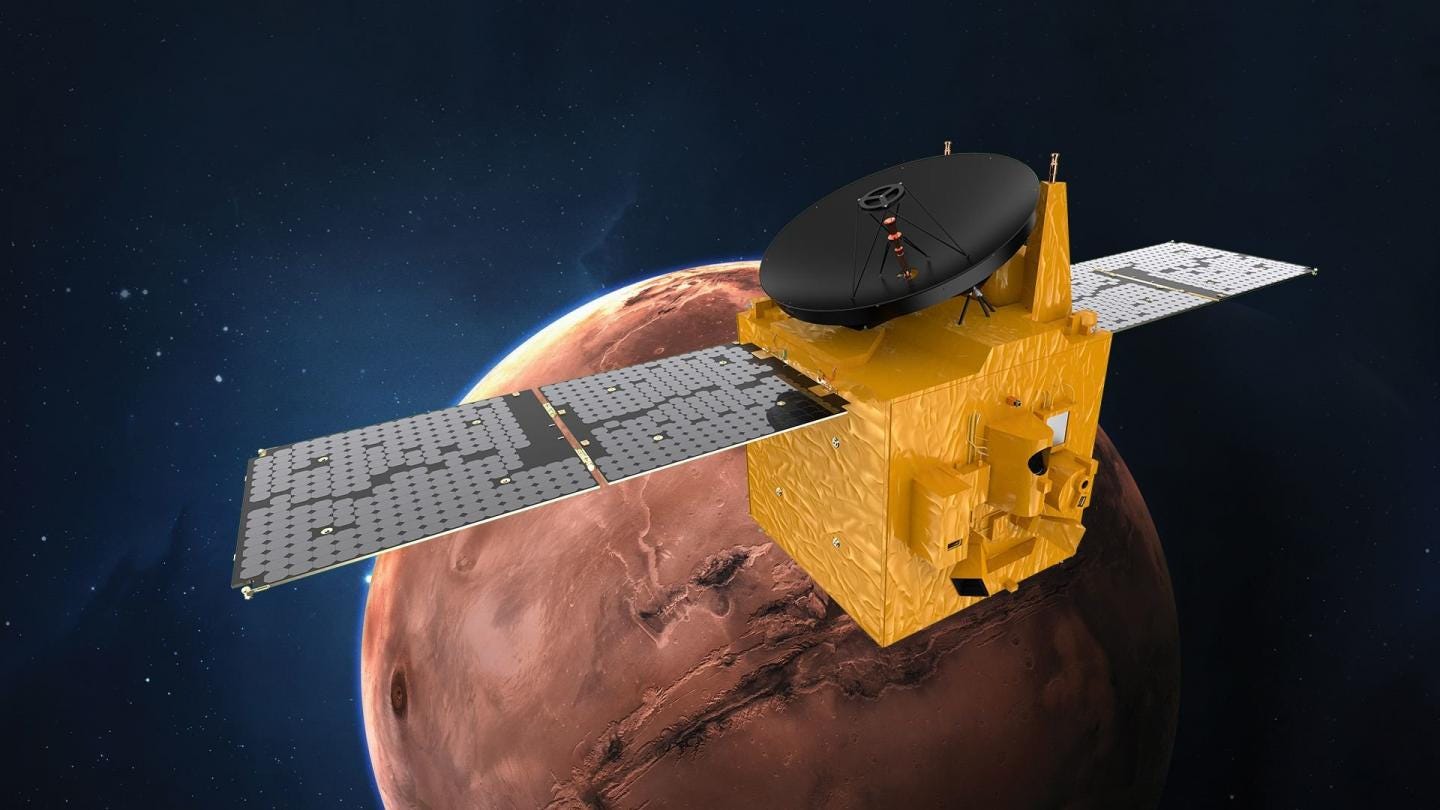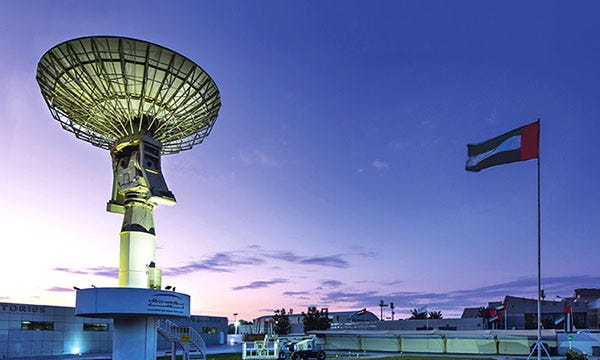The UAE Space Ecosystem: A Promising Future in the Global Space Race
The regional ecosystem is positioned for rapid growth, and this week we’re doing a brief overview of what makes the country a great choice for space tech founders and investors.
UAE Success Stories
Although a relatively new ecosystem with the formation of Mohammed Bin Rashid Space Centre (MBRSC) in 2006 and the UAE Space Agency in 2013, the emirates have already achieved landmark success, positioning this region as a global leader and contributor to the advancement of space.
Emirates Lunar Mission: Launched in December 2022, two years ahead of schedule, Rashid is equipped with two high-resolution cameras, a microscopic camera to capture small details, and a thermal imaging camera. The rover will also carry a Langmuir probe, designed to study the Moon's plasma, and will attempt to explain why Moondust is so sticky. The rover will study the lunar surface, mobility on the Moon’s surface, and how different surfaces interact with lunar particles. A multi-faceted ground-up approach to Space.
Emirates Mars Mission: The space probe will study daily and seasonal weather cycles, weather events in the lower atmosphere, such as dust storms, and how the weather varies in different regions of the planet. It will also add to knowledge about Mars's atmospheric hydrogen and oxygen loss and other possible reasons behind the planet's drastic climate changes. This makes UAE the first Arab nation and the fifth country to reach Mars.
The UAE Astronaut Programme: Emirati astronaut Hazza Al Mansoori was the first Arab and Emirati astronaut to travel to ISS on an eight-day space mission on 25 September 2019. To further their astronaut core, the UAE has selected Sultan Al Neyadi, Nora Al Matrooshi (the first Arab woman selected as an astronaut), and Mohammed Al Mulla.
DubaiSat-1 and -2: Both move in Low Earth orbit to generate high-resolution optical images in multispectral bands. These images are used by various governmental and private organizations within the United Arab Emirates and across the globe.
KhalifaSat: Will provide high-resolution images with a GSD of 0.7 m Panchromatic and multispectral bands of 4 m. These images will be made available for various commercial purposes, including disaster management, environmental monitoring, and change detection. The satellite will have 320 Mbit/s speed of data transfer for image download. With 10 imaging sensors and 20 altitude sensors, KhalifaSat will orbit at a speed of 7.5 km/s in space.
UAE multi-faceted ground-up approach to Space
By building, investing, and leading in the creation of critical stakeholders in the region, the UAE is building the core foundation required for a flourishing space ecosystem. With space being a critical agenda point at the national level, there is an acceleration in this ecosystem building which is a welcomed approach for any space entrepreneur.
Mohammed Bin Rashid Space Centre: An advanced scientific and technological hub responsible for making the UAE a world leader in space services and exploration. The center's hierarchy is divided into two main sectors: the Scientific and Technical Affairs Sector and the Administrative and Financial Sector. Both sectors have their objectives and policies.
UAE Space Agency: The Agency directs, invests in, and promotes several initiatives. The space agency encourages the development and use of space science and technology in the country and advance within the industry.
Khalifa University: An MoU was signed by Al Yah Satellite Communications Company (Yahsat), the Masdar Institute of Science and Technologyand Orbital ATK Inc to create a Degree Programme in Advanced Space Science, the first such course of study in the Middle East.
The University of Sharjah: The new program will improve employability by developing the postgraduate skills required to successfully transition to a research role in academia or professional research centers.
UAE University: The interdisciplinary Space Science MSc Program, offered in collaboration with the College of Science (COS), College of Engineering (COE), College of Humanities & Social Science (CHSS), and College of IT (CIT) at UAEU, with the support of National Space Science and Technology Center (NSSTC), is to serve as a thorough and effective academic exposure of Space Sciences and Technology for students aspiring to build careers in the space sector.
UAE Space Economic Zones
Launched in January 2022 in collaboration with the UAE Space Agency, the Space Economic Zone Program is the first space-tech hub in the UAE as part of the UAE Space Agency's Space Economic Zones program. The program has four key pillars; Accelerator Group, Space Labs, Space Government Services, and Work Space. To support this, the economic zones keep navigating the business registration, incubation support, mentorship, networking, access to capital, and opportunities for global research cooperation. The first of its kind was launched in Abu Dhabi in Masdar City.
Poised for Growth
Overall, the UAE space ecosystem provides many opportunities for startups interested in the space industry. With a supportive environment, access to funding and resources, and a culture of innovation and discovery, startups in the UAE are well-positioned to develop and commercialize space technologies and make a meaningful impact in the global space race.
Resources For Space Founders
🏦 UAE Space Agency - Space Investment Promotion Plan
🔮 UAE National Space Strategy 2030





